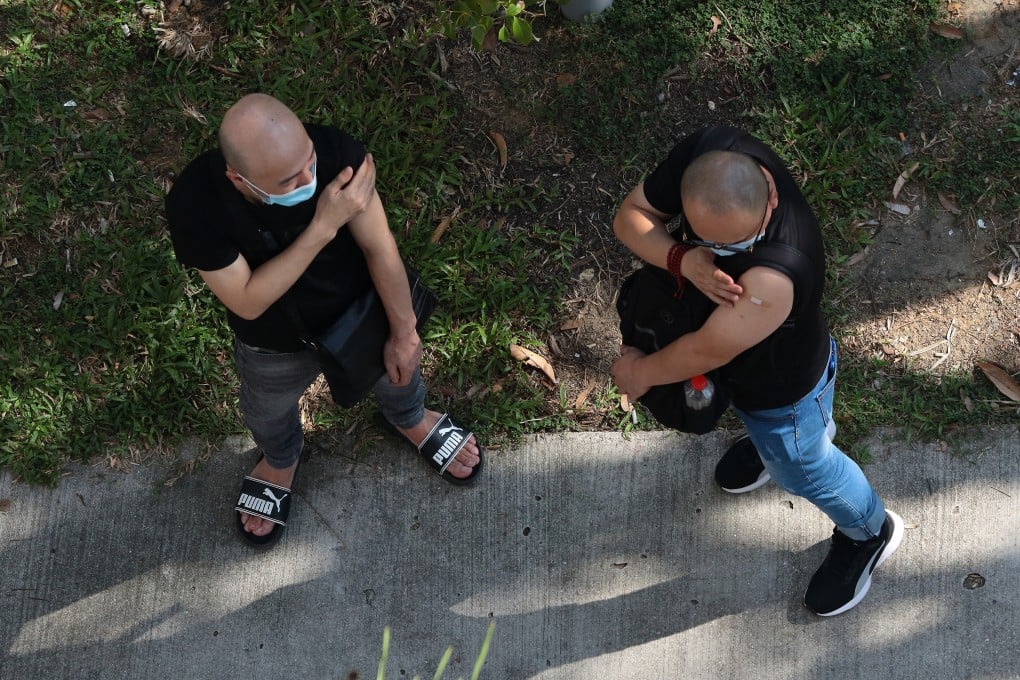Covid-19: Singapore residents who took Sinovac turn to Pfizer to up their antibody counts, amid debate on booster shots
- More than 85,000 people in the island nation have chosen to pay for Sinovac shots, despite having free access to Pfizer-BioNTech and Moderna jabs
- Yet amid this sustained interest in Chinese vaccines, with Sinopharm now available, some are finding that they need a booster shot

Her antibody count stood at 140, a figure her doctor said was about 10 times lower than what someone would have after two Pfizer-BioNTech doses, which along with Moderna shots are provided free to residents of the island nation above the age of 12.
“My doctor had repeatedly advised me to go for Pfizer or Moderna, but I decided to give Sinovac a try as I wanted to see how strong the vaccine is,” she said, adding that she had read reports of it being of lower efficacy than the others but did not believe that was the case.
“I was a little disappointed,” added Soh, who works in the banking industry and asked that only her last name be used for privacy reasons. She paid about S$20 (US$15) for the two jabs at a private clinic. Her husband and sister also received Sinovac doses, and their antibody counts were 400 and nine, respectively.
Dr Leong Hoe Nam, an infectious diseases specialist at Rophi Clinic, one of 31 private clinics allowed to administer Sinovac jabs, said there had been an increasing number of patients who found there was inadequate protection from the Chinese-made vaccine.
“They took the Sinovac shots, did the blood test and saw low antibody levels, then opted for Pfizer as the third dose,” he said.